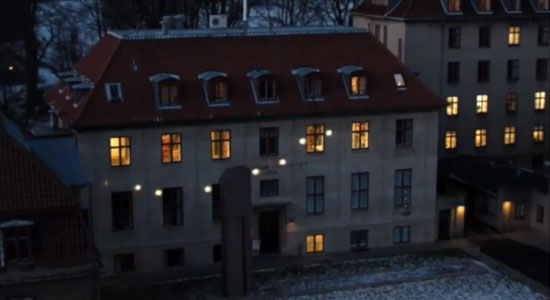The institute
The Niels Bohr Institute represents physics at the University of Copenhagen.
At the Niels Bohr Institute we research and teach within a broad spectrum of physics areas: Astrophysics, Biophysics, Solid State Physics, Climate and Geophysics, Quantum Physics and Particle Physics.
The institute was inaugurated March 3, 1921, by Professor Niels Bohr. We are approx. 430 researchers, 100 administrative and technical staff, 140 Ph.D. students and 750 Physics students.
In addition, the institute is also involved in the courses in nanoscience and climate change.
The European Physical Society has declared the Niels Bohr Institute as a Historic Site with great international importance for developments in physics and research. The Niels Bohr Institute has been selected on this basis: “This is where the foundation of atomic physics and modern physics was created in a creative scientific environment inspired by Niels Bohr in the 1920s and 30s.”
The Niels Bohr Institute has a strong cultural heritage accumulated from our 100 years of internationally high level of research and teaching.
The initiator of our Department, Niels Bohr, had an international mindset about scientific collaboration as well as a desire for an open and open-minded atmosphere for all.
100 years later, we still have an informal and open international research environment that strives to promote research, teaching and innovation at the highest level with respect and helpfulness towards students, colleagues and all other stakeholders.
Our students, staff and partners are the source of our success and at the same time our best ambassadors. As a Department, we want to create an inspiring and challenging work environment with a good balance between work and private life.
We want the Niels Bohr Institute to be a place where people are proud of and happy to work, study and collaborate with.
At NBI, we consider diversity to be a significant factor and opportunity that can create an improved impact on NBI's teaching and research, both in the short and long term.
- This means that we value the differences in our employees, and we appreciate the perspectives that they each contribute based on their gender, age, race, religion, ethnic origin, sexual orientation, education, personality, and perception of life.
- We recognize every employee for his or her special abilities and competencies. This contributes to the individual employee's job satisfaction, promotes efficiency in task solution, and provides a better research environment.
If you are interested in a guided historical tour at the institute, please contact Rob Sunderland (sunderland@nbi.ku.dk) at the Niels Bohr Archive or read more here: https://www.nbarchive.dk/visit-us/tours/

